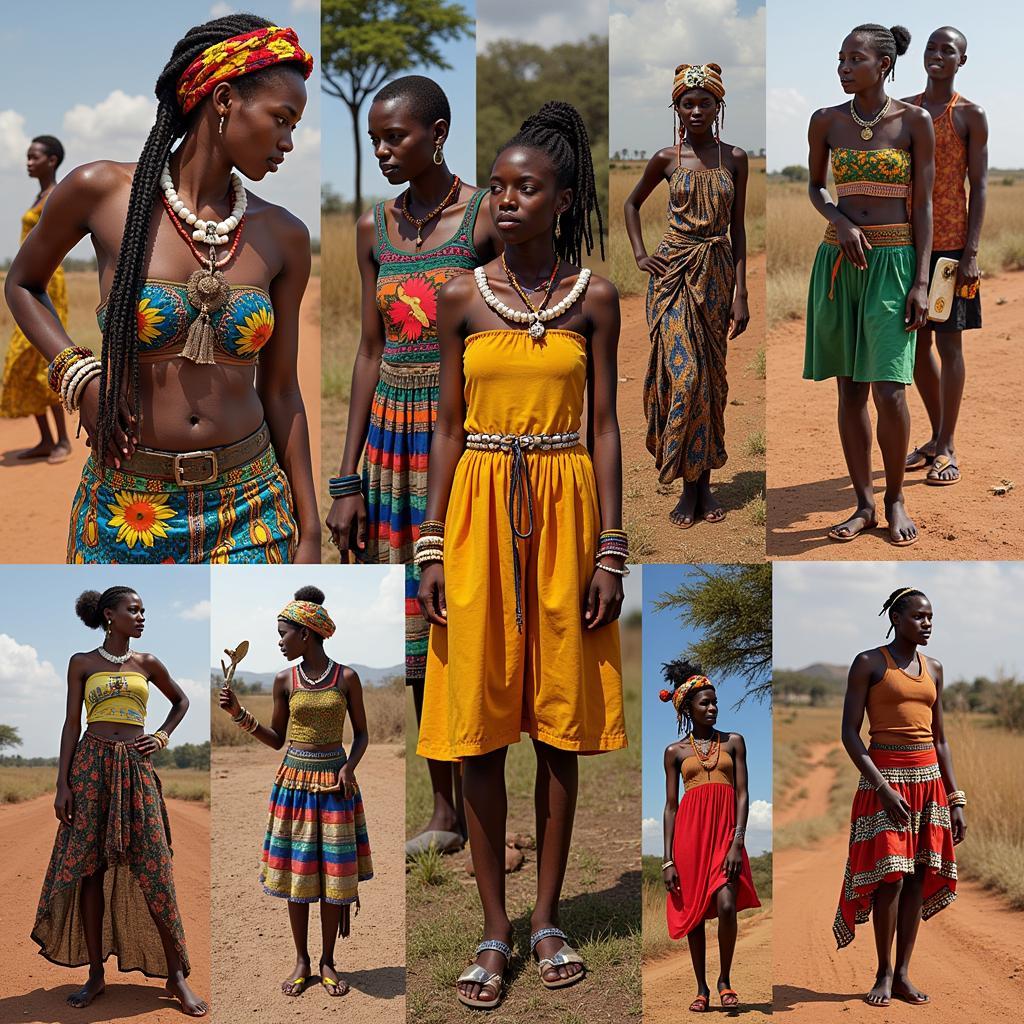From African to English: Exploring Linguistic Landscapes
African To English translation and interpretation embodies more than just converting words; it’s a bridge between cultures, histories, and perspectives. This exploration delves into the complexities and nuances of this linguistic exchange, recognizing the rich tapestry of languages across the African continent and the dynamic interplay with the English language.
Understanding the “African to English” concept requires acknowledging the diversity within Africa itself. There isn’t a single “African” language but rather thousands of distinct languages grouped into various families. This linguistic richness contributes to the vibrant cultural landscape of the continent and presents unique challenges and opportunities for translation and interpretation. From literature and oral traditions to everyday conversations and official documents, the journey from African languages to English is a multifaceted process.
The Multifaceted Nature of African to English Translation
The task of translating from African languages to English involves much more than simply substituting words. It necessitates a deep understanding of the cultural context, idioms, and nuances embedded within each language. A direct translation can often miss the intended meaning, leading to misinterpretations and cultural misunderstandings.
Challenges in African to English Translation
One significant challenge is the sheer number of African languages. Finding qualified translators and interpreters for less commonly spoken languages can be difficult. This scarcity can hinder communication and limit access to information and resources for speakers of these languages. Another challenge arises from the structural differences between African languages and English. Different grammatical structures, verb tenses, and sentence constructions require careful consideration to ensure accurate and natural-sounding translations.
Furthermore, translating cultural concepts and idioms presents a unique set of hurdles. Many expressions and proverbs are deeply rooted in specific cultural practices and beliefs, making them difficult to convey accurately in English without losing their original meaning.
Opportunities in Bridging the Linguistic Gap
Despite the challenges, the field of African to English translation offers immense opportunities. It facilitates cross-cultural communication, promotes understanding, and opens up avenues for collaboration in various fields, such as business, education, and research. The translation of African literature into English allows a wider audience to experience the rich storytelling traditions and literary talents of the continent. This exposure contributes to a greater appreciation of African cultures and perspectives.
Exploring Different Facets of “African to English”
The phrase “African to English” encompasses various aspects of linguistic exchange. It can refer to the translation of written texts, the interpretation of spoken language, the adaptation of cultural expressions, and the development of African literature in English.
African Writers in English
African writers have made significant contributions to English literature, crafting compelling narratives that explore themes of identity, colonialism, and post-colonial experiences. Authors like Chinua Achebe, Ngugi wa Thiong’o, and Chimamanda Ngozi Adichie have gained international recognition for their powerful storytelling and insightful portrayals of African Life. Check out this resource on African writers in English.
 African Authors in English Literature
African Authors in English Literature
The Role of Technology in Translation
Technology plays an increasingly important role in facilitating African to English translation. Machine translation tools can assist with basic translations, although human expertise is still crucial for ensuring accuracy and capturing nuances. Furthermore, online platforms and resources are making it easier to connect with translators and interpreters specializing in various African languages.
The Future of African to English Translation
As communication and collaboration across cultures continue to grow, the demand for accurate and culturally sensitive translation will only increase. Investing in training and development for translators and interpreters specializing in African languages is essential for bridging the linguistic gap and fostering greater understanding.
This also necessitates continued research and development of language technologies that can support the translation process. The future of “African to English” lies in a collaborative approach that combines human expertise with technological advancements to ensure effective and meaningful communication. You can find more resources on the African Development Bank website English. It might also be beneficial to check out an African English voice over agency for your specific project needs.
In conclusion, the journey from African to English is a dynamic and evolving process that reflects the rich linguistic and cultural diversity of the African continent. By understanding the complexities and nuances involved, we can build stronger bridges of communication and foster greater appreciation for the diverse voices and perspectives of Africa. This understanding is key to unlocking the full potential of cross-cultural exchange and collaboration.
FAQ
- What are the main challenges in translating from African languages to English? The sheer number of African languages, structural differences between languages, and translating cultural concepts are key challenges.
- How does technology contribute to African to English translation? Machine translation tools assist with basic translations, and online platforms help connect with specialized translators and interpreters.
- Why is accurate translation important? Accurate translation is crucial for avoiding misinterpretations, fostering understanding, and enabling effective communication.
- How can I find a translator for a less commonly spoken African language? Online platforms and specialized translation agencies can help you find translators for less common languages.
- What is the significance of African literature in English? African literature in English provides valuable insights into African cultures, histories, and perspectives, enriching world literature.
Common Scenarios and Questions
Scenario: A researcher needs to translate historical documents written in a specific African language.
Question: How can they find a qualified translator specializing in this language and historical texts?
Further Exploration
For more information on specific African languages and their literary traditions, you can explore resources available online and in academic libraries.
Need assistance with African to English translation or interpretation? Contact us at Phone: +255768904061, Email: [email protected], or visit us at Mbarali DC Mawindi, Kangaga, Tanzania. We have a 24/7 customer support team ready to assist you.

